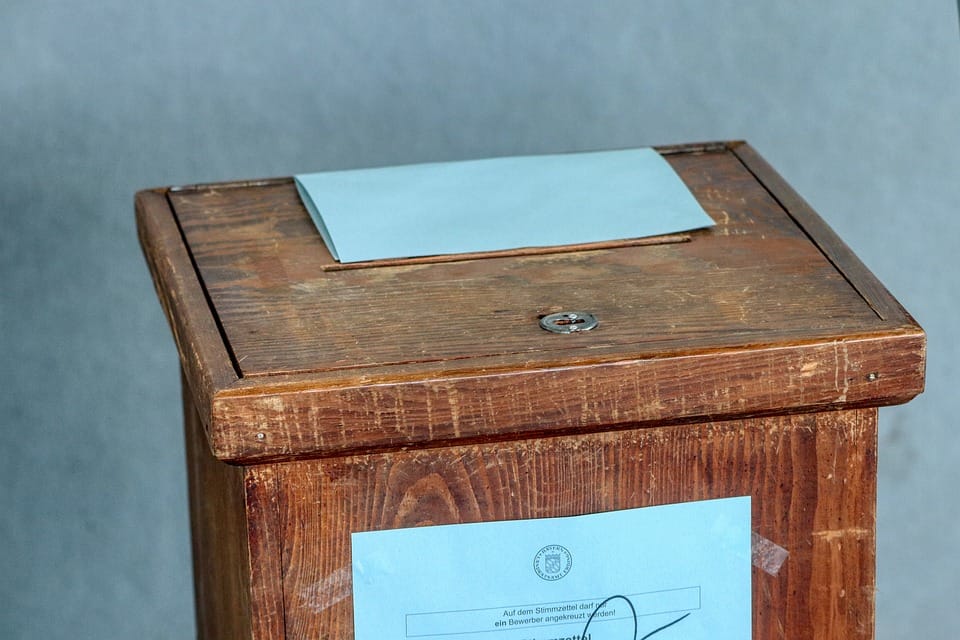Voting in the Digital Age: How Blockchain Can Enhance Election Security and Integrity
In the digital age, the way we vote is evolving. With the increasing use of technology in our daily lives, it’s natural to wonder if we can also use technology to make voting more secure and efficient. One such technology that has gained significant attention in recent years is blockchain. In this article, we’ll explore how blockchain can enhance election security and integrity, and provide a comprehensive overview of how to use blockchain for secure online voting.
What is Blockchain?
Before we dive into the world of voting, let’s take a step back and understand what blockchain is. Blockchain is a decentralized, distributed ledger technology that records transactions across a network of computers. Each block in the chain contains a unique code, known as a "hash," that links it to the previous block, creating a chain of blocks (hence the name). This makes it nearly impossible to alter or manipulate the data stored on the blockchain, as any attempts to do so would be immediately detectable.
How Does Blockchain Enhance Election Security?
So, how can blockchain enhance election security? Here are a few ways:
- Immutable Records: Blockchain technology ensures that voting records are immutable, meaning they cannot be altered or deleted. This provides an auditable trail of all voting activity, allowing for transparency and accountability.
- Encryption: Blockchain transactions are encrypted, making it virtually impossible for unauthorized parties to access or manipulate the data.
- Decentralized Network: Blockchain networks are decentralized, meaning that no single entity controls the data. This reduces the risk of hacking or manipulation.
- Smart Contracts: Blockchain technology enables the creation of smart contracts, which are self-executing contracts with the terms of the agreement written directly into lines of code. In the context of voting, smart contracts can be used to automate the voting process, ensuring that votes are counted accurately and transparently.
Challenges and Concerns
While blockchain technology holds great promise for enhancing election security, there are still several challenges and concerns to address:
- Cybersecurity: While blockchain technology is secure, it’s not foolproof. Cybersecurity experts must be brought in to ensure that the voting system is properly secured.
- Cost: Implementing a blockchain-based voting system can be costly, which may be a barrier for some countries or organizations.
- Voter Education: Voters must be educated on how to use blockchain-based voting systems, which may require additional training and resources.
- Regulatory Framework: Governments must establish a regulatory framework to ensure that blockchain-based voting systems comply with existing election laws and regulations.
Implementing Blockchain for Secure Online Voting
So, how can we implement blockchain for secure online voting? Here’s a step-by-step guide:
- Choose a Blockchain Platform: Select a blockchain platform that is suitable for your voting needs. Popular options include Ethereum, Hyperledger Fabric, and Corda.
- Develop a Smart Contract: Develop a smart contract that automates the voting process, ensuring that votes are counted accurately and transparently.
- Create a Voting Application: Create a voting application that allows voters to cast their ballots securely and easily.
- Test and Validate: Test and validate the blockchain-based voting system to ensure that it is secure and functional.
- Deploy and Monitor: Deploy the blockchain-based voting system and monitor its performance and security.
Real-World Examples
Several countries and organizations have already implemented blockchain-based voting systems, with promising results:
- Zug, Switzerland: In 2016, the Swiss canton of Zug held a blockchain-based voting trial, allowing citizens to cast their ballots using a mobile app.
- Voting in Estonia: Estonia has been using blockchain technology for online voting since 2005, and has seen a significant increase in voter turnout as a result.
- Blockchain-based Voting in the United States: Several US states have explored the use of blockchain technology for voting, including West Virginia, which conducted a blockchain-based voting trial in 2018.
Conclusion
In conclusion, blockchain technology has the potential to revolutionize the way we vote, enhancing election security and integrity. While there are challenges and concerns to address, the benefits of blockchain-based voting systems far outweigh the risks. By implementing blockchain technology, we can create a more secure, transparent, and efficient voting process.
FAQs
Q: Is blockchain technology secure?
A: Yes, blockchain technology is highly secure. It uses advanced cryptography and decentralized networks to ensure that data is tamper-proof and transparent.
Q: Is blockchain technology easy to use?
A: Blockchain technology can be complex, but it can also be easy to use. With the right training and education, voters can easily use blockchain-based voting systems.
Q: Is blockchain technology expensive?
A: Implementing a blockchain-based voting system can be costly, but it can also be cost-effective in the long run. By reducing the risk of fraud and increasing voter turnout, blockchain-based voting systems can save governments and organizations money in the long run.
Q: Is blockchain technology regulated?
A: Yes, blockchain technology is regulated. Governments and organizations must establish a regulatory framework to ensure that blockchain-based voting systems comply with existing election laws and regulations.
Q: Can blockchain technology be used for other types of voting?
A: Yes, blockchain technology can be used for other types of voting, such as referendums, elections, and plebiscites.

Leave a Reply